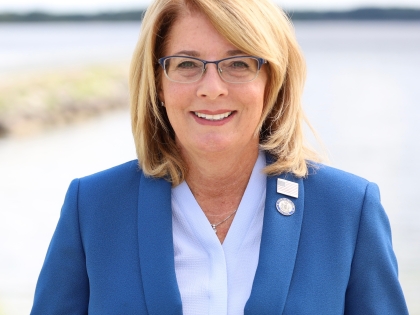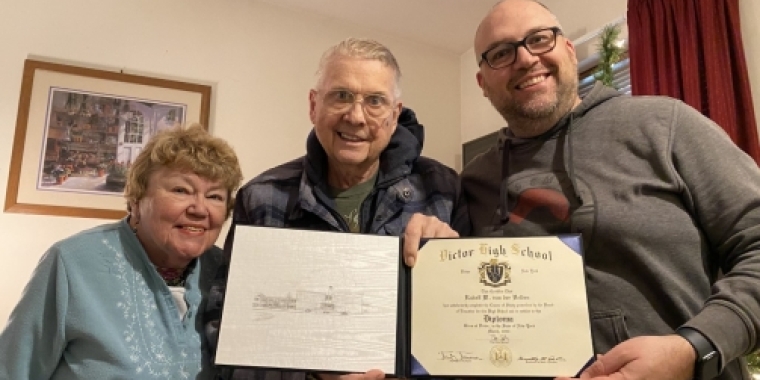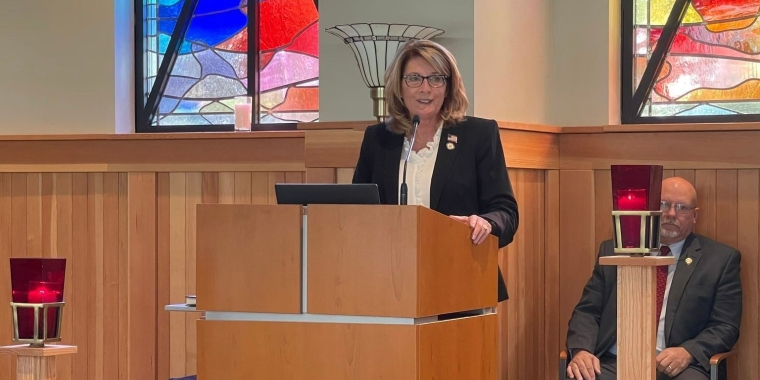
Column: Children’s Mental Health Should Be a Priority for All of Us
April 27, 2022

It’s okay not to be okay.
May 1-7 is Children’s Mental Health Awareness Week and I hope we’ll all take this sentiment to heart.
Last October, the American Academy of Pediatrics, the American Academy of Child and Adolescent Psychiatry, and the Children’s Hospital Association declared a state of emergency in children’s mental health. Two months later, the U.S. Surgeon General issued a detailed advisory on the urgent need to address the nation’s youth mental health crisis.
We’re all aware the pandemic has heightened the challenges our young people are facing, having disrupted their schooling, socialization and development, and access to support services. Even before the pandemic, according to the Surgeon General’s advisory, mental health challenges were the leading cause of disability and poor life outcomes in young people, with up to 1 in 5 children ages 3 to 17 having a mental, emotional, developmental, or behavioral disorder.
The CDC has reported that more than 1 in 3 high school students experienced poor mental health during the pandemic. Nearly half of teens felt persistently sad or hopeless.
And perhaps most frightening, suicide is the second-leading cause of death among people aged 10-34.
This issue is important to me not only as a State Senator who advocates for our children and families, but as a mother and grandmother.
I’ve heard from parents struggling to get counseling for their children, many put on waiting lists for six months or longer. I’ve heard from school districts seeing increasing numbers of students with mental health issues. I’ve heard from providers who lack the capacity to meet the growing demand for services.
Locally, there’s a shortage of inpatient treatment beds, which means children in crisis often end up in already-strained emergency rooms waiting for an evaluation. Clinics throughout the region report hundreds of families waiting for care.
Studies have shown that students who feel connected to others at school report better mental health. Today, many area schools are placing a greater emphasis on mental health programs and counseling. I applaud those efforts and will continue to advocate for the resources schools and families need.
In February, it was my honor to present a Senate Proclamation for School Counseling Week recognizing the school counselors who work so hard to support students in all aspects of their health and well-being. I appreciate them, and our school psychologists and social workers.
This year’s state budget boosts aid for mental health services for children, college students and veterans, and provides funding to increase capacity and help recruit more psychiatrists and psychiatric nurse practitioners.
As a government, we must continue to invest in mental health programs and treatment and ensure funding is fairly distributed, especially to our rural areas where access is more limited. We must prevent the closure of psychiatric beds, facilitate the opening of more beds to meet urgent needs, and grow the workforce. We must foster more collaboration with experienced community providers, promote mental health education, and work together to remove the stigma around mental health.
As a community, we can all play a part by being involved in the lives of our young people. Listen. Advocate. Mentor. Volunteer.
Healthy children grow up to be healthy and successful adults who contribute to the strength and vitality of our communities. I often say that children are our future. And our future depends on their ability to thrive both physically and mentally.
Mental health challenges are real and treatable, and help is available.
In Monroe, Wayne, Cayuga, Ontario, Livingston, and Seneca County, you can call 211 or visit 211lifeline.org to be directed to local resources.
There’s also the National Alliance on Mental Illness-NYS, or NAMI. Visit naminys.org to find the affiliate near you.
The National Suicide Prevention Lifeline is 1-800-273-8255. In New York State, you can also use the Crisis Text Line and text Got5 to 741741 to reach a trained crisis counselor.
All of these resources are confidential.
If you or someone you know is experiencing a mental health challenge, please know you are not alone. Seek help if you need it.
It’s okay not to be okay.
Share this Article or Press Release
Newsroom
Go to Newsroom
Solutions Not Mandates: Solving the NYS Housing Crisis
March 14, 2023

Senator Helming Statement on New York's First State Veterans Cemetery
February 24, 2023
